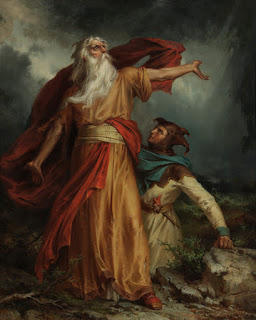Chaucer's Troilus and Criseyde: Unraveling the Tragic Poem
Geoffrey Chaucer's "Troilus and Criseyde" stands as a poignant example of medieval English literature, renowned for its exploration of tragic themes and intricate character portrayals. The narrative unfolds against the backdrop of the Trojan War, weaving a tale of love, betrayal, and the inexorable forces of fate. This essay aims to delve into the elements that render "Troilus and Criseyde" a tragic poem, examining the tragic themes, the characters' flaws, the role of fate, the emotional impact on the reader, and the ultimate tragic resolution.
Tragedy, as a literary genre, is characterized by the portrayal of suffering, inevitable downfall, and the exploration of profound themes. Chaucer's "Troilus and Criseyde" aligns with this genre through its multifaceted exploration of love, fate, and the human condition. The central love story between Troilus, a Trojan prince, and Criseyde, a widow and niece of the Trojan King Priam, unfolds in a tragic fashion, marked by heart-wrenching circumstances and unavoidable consequences.
One of the prominent tragic themes in the poem is the exploration of love and its complexities. Troilus's idealistic view of love serves as a tragic flaw that shapes the trajectory of the narrative. His ardent belief in the constancy and purity of love leads him to romanticize Criseyde's affections, setting the stage for emotional turmoil when faced with the harsh realities of a world at war. The portrayal of love as a force that can be both elevating and devastating contributes to the tragic atmosphere of the poem.
Criseyde, on the other hand, is depicted as a pragmatic character whose decisions are guided by the harsh realities of her circumstances. Her choices, while driven by a desire for self-preservation, contribute to the tragic unfolding of events. The tension between Troilus's idealism and Criseyde's pragmatism creates a poignant exploration of the complexities inherent in human relationships, adding layers to the tragedy that befalls the characters.
The characters' flaws play a pivotal role in shaping the tragic nature of the narrative. Troilus's idealism and Criseyde's pragmatic approach serve as tragic flaws that contribute to their downfall. Troilus's inability to reconcile his romantic ideals with the harsh realities of war and betrayal sets the stage for his emotional devastation. Criseyde's pragmatic decisions, driven by the need for survival in a tumultuous world, lead to a betrayal that amplifies the tragedy of the love story. Chaucer skillfully crafts characters with depth and nuance, ensuring that their flaws contribute to the inevitability of their tragic fates.
The theme of fate and fortune permeates the narrative, underscoring the notion that despite human efforts to control their destinies, external forces often dictate the course of their lives. The Trojan War serves as a backdrop, a manifestation of the larger forces at play in the lives of Troilus and Criseyde. The poem suggests that while individuals may strive to shape their destinies, the overarching influence of fate and fortune remains an inescapable reality. This fatalistic perspective adds a layer of inevitability to the unfolding tragedy, emphasizing the helplessness of the characters in the face of larger cosmic forces.
The emotional impact of "Troilus and Criseyde" on the reader is profound, as Chaucer masterfully elicits empathy and sympathy for the characters. The juxtaposition of moments of joy and heartbreak, love and betrayal, creates a rollercoaster of emotions. The reader becomes emotionally invested in the characters' struggles, making the tragic elements all the more poignant. Chaucer's skillful use of language and imagery allows the reader to feel the intensity of the characters' experiences, contributing to the overall emotional resonance of the poem.
The tragic resolution of "Troilus and Criseyde" culminates in Troilus's untimely demise, marking the culmination of the characters' tragic arcs. Troilus's death serves as the ultimate consequence of the tumultuous events that unfolded throughout the narrative. The inevitability of this tragic resolution is foreshadowed by the fatalistic tone that pervades the poem. The reader is left to reflect on the consequences of the characters' choices and the broader implications of their tragic fates.

.jpg)
Comments
Post a Comment